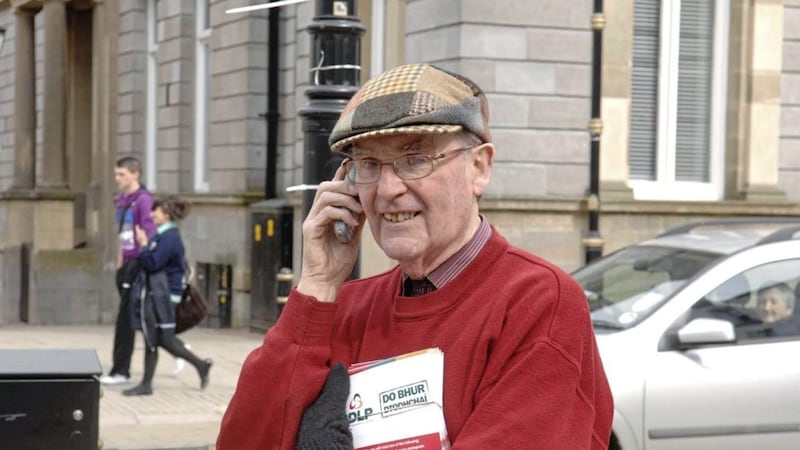FERGUS McQuillan had a deep love for Newtownbutler and its people and a determination to improve their lives.
As a civil rights leader he stood up against discrimination in housing and employment in his native Fermanagh, at one point leading a motorcade to Stormont.
He later continued this work as an SDLP councillor, serving as council chairman twice during three decades' service to his constituents.
Fergus also spent his entire teaching career at St Mary’s Primary School in Newtownbutler, as well as running a pub in the town and a farm.
Described by his daughter as kind, caring, funny and gentle, he is also remembered as someone who made a difference to hundreds of people's lives.
Fergus was born in 1933, the younger of two children to farmer Dan McQuillan and his wife Lena (née O’Keefe) in the townland of Lurganboy.
Thought to be a distant relation of F Scott Fitzgerald, he was pleased in later life to host two of the American writer's grandchildren during a visit to Fermanagh as they researched their family tree back to McQuillans who left Newtownbutler in the 19th century.
In his teens he boarded 70 miles from home at St Columb's College in Derry, where he was made head boy, and trained as a teacher after a degree in history and Irish at Queen's University Belfast.
Past pupils of St Mary's PS, where he mainly taught P6 classes, remember him as an easy-going and popular teacher and vice-principal.
Fergus enjoyed Gaelic football in his youth and was heavily involved throughout his life with the Newtownbutler First Fermanaghs club. He had an encyclopaedic knowledge of the sport and didn't miss an All-Ireland final until recent years.
He also took particular satisfaction in helping prepare young people for the Community Games in Mosney each year.
He had an interest in politics from an early age. Having seen cousins among the many young Catholics forced to leave for England in search of work, he set about highlighting discrimination and unionist gerrymandering.
Fergus chaired the Civil Rights Association branch in Newtownbutler, helped produce the widely-distributed pamphlet Fermanagh Facts about housing and employment inequalities, and led a motorcade from the town to Stormont in 1969 despite having a broken leg.
He also assisted in exposing the truth behind the so-called “pitchfork killings”, when two men were found stabbed to death on a farm two days after an off-duty UDR man, John Bell, had been killed by the IRA in October 1972.
The savage killings of civil rights activist Michael Naan and farm labourer Andrew Murray, assumed to be a revenge attack by local loyalists, left a legacy of fear and mistrust in the community and it was not until nine years later that Fergus's own suspicions were confirmed when two members of a Scottish army patrol were instead convicted of the murders.
Inspired by John Hume, Fergus joined the SDLP and was elected a councillor in 1981, with the family pub McQuillan's serving as something of a constituency office.
He chaired the local community development association and took great interest in cross-border links, serving as the first chairman of the Irish Central Border Area Network.
Fergus McQuillan retired from teaching in 1992 and stood down from the council in 2011 to enjoy retirement with his Coleraine-born wife of 53 years, Anne.
He died aged 84 on May 18 and is survived by his wife Anne, daughter Áine, son Peter and grandchildren. He was predeceased by his sister Phyllis.



